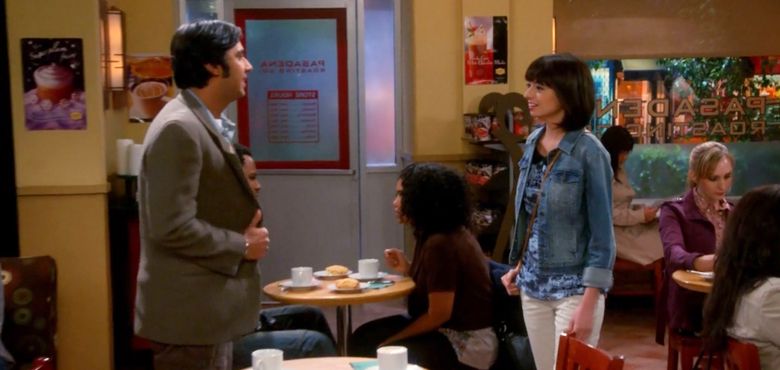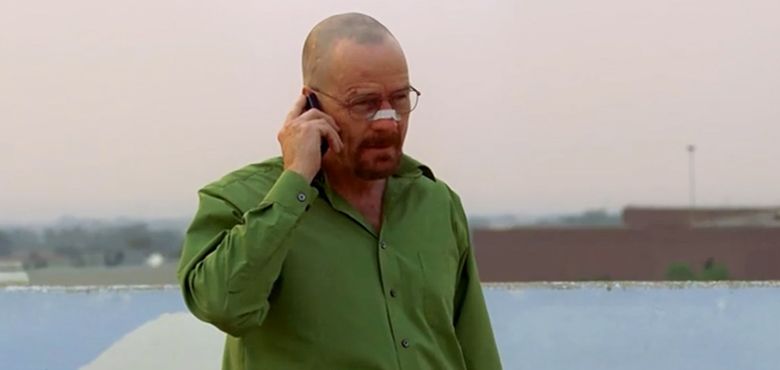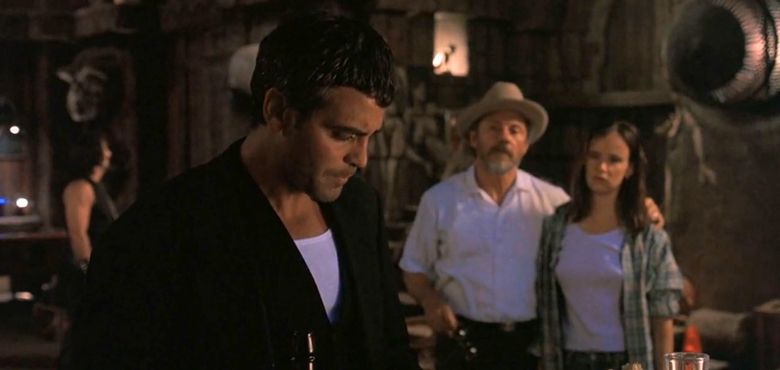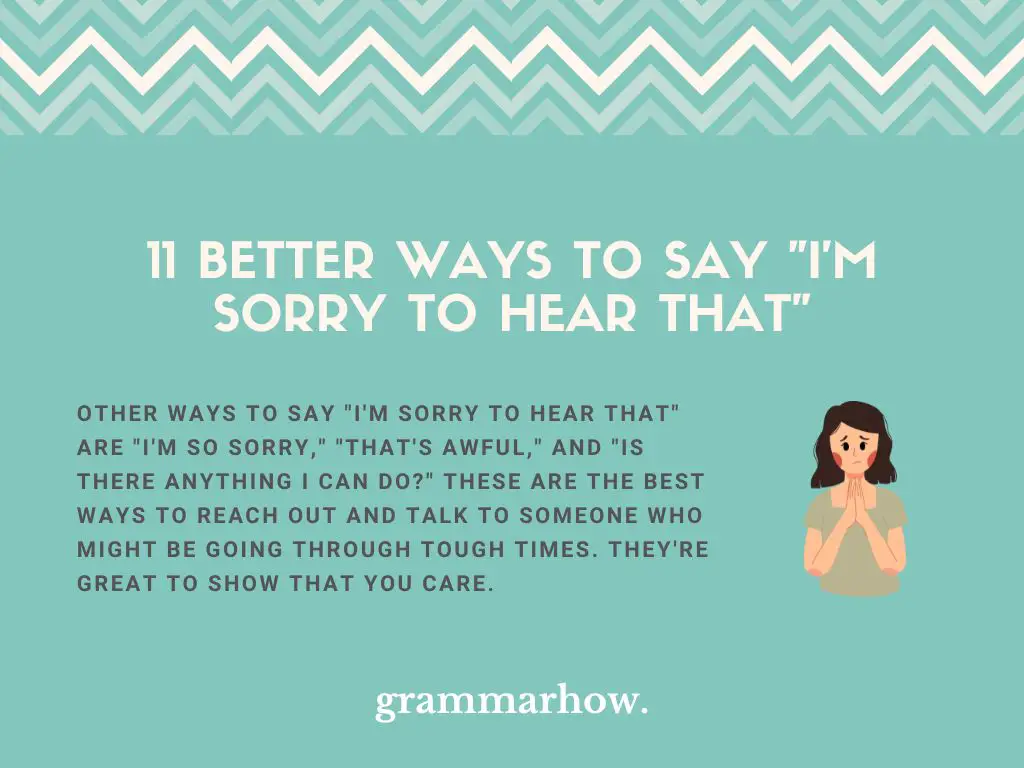Как бы вы ответили на вопрос how are you? или how are things? Что вы помните, кроме I’m fine, которое выучили еще в школе? Многие люди даже с хорошим английским теряются, когда слышат этот вопрос. Сегодня рассмотрим, как иначе ответить на вопрос «как дела?»
1. I feel great! — У меня все отлично!
В конце супергеройского фильма «Веном» главный герой Эдди разговаривает со своей бывшей невестой на крыльце ее дома.
Thanks for sticking by me, Anne. Thanks for saving me.
So, how are you feeling after all that?
I feel great. Awesome.
Перевод
— Спасибо, что не бросила меня, Энн. Спасибо, что спасла.
— И как твое самочувствие?
— У меня все отлично. Супер.
Еще один вариант фразы — I feel fine.
2. Couldn’t be better! — Лучше всех! / Лучше не бывает!
В фильме «Мне бы в небо» сестра главного героя звонит ему, когда тот находится в очередной командировке.
Hey, Ryan, how you holding up?
Fine. You and the kids?
Missy’s outstanding, Matthew made varsity. How’s the road?
Couldn’t be better.
Перевод
— Привет, Райан. Как дела?
— Хорошо. Как ты? Как дети?
— Мисси прекрасно, Мэтью попал в сборную. Как твои поездки?
— Лучше не бывает.
Также вы можете сказать couldn’t be nicer или couldn’t be more pleased. Если же дела ваши идут неважно, используйте фразу couldn’t be worse.
3. (As) fit as a fiddle. — В добром здравии. / Как огурчик.
В сериале «Безумцы» мы можем наблюдать обычную беседу в лифте.
Duck, how are you?
Fit as a fiddle, thank you.
Перевод
— Дак, ты как?
— В добром здравии, спасибо.
Это британское выражение, чаще его употребляют люди старшего поколения.
4. Very well, thank you! — Очень хорошо, спасибо!
Фильм «Да здравствует Цезарь!» посвящен Голливуду 1950-х годов. В одной из сцен главный герой Эдди решает проблемы на съемочной площадке и общается по телефону с одним из продюсеров.
How’re you doing?
Very well, thank you. “Merrily We Dance” starts shooting today.
Перевод
— Как твои дела?
— Очень хорошо, спасибо. Сегодня начались съемки «Веселых танцев».
5. I’m pretty good. — У меня все довольно неплохо.
В ситкоме «Теория Большого взрыва» Раджеш беседует с бывшей девушкой Люси.
Anyway, uh, how are you?
I’m pretty good. Listen, I just wanted to apologize for breaking up with you in an e-mail.
Перевод
— Ну, как твои дела?
— У меня все довольно неплохо. Слушай, я хотела извиниться за то, что рассталась с тобой по электронной почте.
Также вы можете сказать I’m good, I’m fine, I’m great.
6. I’m doing well. — У меня все хорошо.
В сериале «Во все тяжкие» главный герой Уолтер звонит своей жене.
How are you doing?
How am I doing? How are you doing?
I’m doing quite well. I’m good.
Перевод
— Как ты там?
— Как я? Как ты?
— У меня все хорошо. Все в порядке.
Можно сказать I’m doing good или I’m doing great. Чтобы проявить вежливость, можно также в ответ поинтересоваться, как дела у вашего собеседника: You?, Yourself?, Self?, What about you?
— How are things?
— I’m doing great. You?
— Как дела?
— У меня все хорошо. А у тебя?
7. (I) can’t complain. — Не жалуюсь.
В ситкоме «Друзья» Фиби интересуется делами героя Брюса Уиллиса.
How are things going with you?
Can’t complain.
Перевод
— Как поживаешь?
— Не жалуюсь.
Не забывайте про букву t в существительном complaint (жалоба).
8. I’m peachy. — У меня все пучком. / Все просто превосходно.
В сериале «Академия “Амбрелла”» герои возвращаются к своей машине, но на капоте уже выпивают посторонние люди.
Good evening. We’re heading out, so if you don’t mind…
I’m actually pretty comfortable. You comfortable?
Oh, I’m just peachy, thanks for asking.
Перевод
— Добрый вечер. Мы выезжаем, так что не могли бы вы…
— Да мне и тут неплохо. А тебе?
— О, у меня все пучком. Спасибо, что спросил.
9. Hunky dory! — Тип-топ! / Как по маслу!
Seth, are you okay?
I’m peachy, Kate. The world is my oyster. Except for the fact that I just rammed a wooden stake into my brother’s chest, because he turned into a vampire. Even though I don’t believe in vampires. Aside from that unfortunate business, everything is hunky-dory.
Перевод
— Сет, ты в порядке?
— Все просто превосходно, Кейт. Весь мир у моих ног. За исключением того, что я воткнул кол в грудь своего брата, потому что он превратился в вампира. Хотя я не верю в вампиров. Не считая этого неприятного обстоятельства, все тип-топ.
Это неформальное выражение используется, когда вы хотите сказать, что нет никаких проблем, все в вашей жизни прекрасно.
10. I’m alright, thanks. — У меня все в порядке, спасибо.
You OK?
Yeah, I’m alright. Thanks.
Перевод
— Ты как?
— Все в порядке, спасибо.
11. I’ve been better. — Бывало и лучше.
В сериале «Оранжевый — хит сезона» одна заключенная интересуется самочувствием другой.
How goes it?
I’ve been better.
If I tell you it gets easier, does that make me corny?
Makes you a liar.
Перевод
— Как ты?
— Бывало и лучше.
— Если я скажу, что полегчает, будет ли это звучать банально?
— Будет звучать фальшиво.
Другой вариант фразы — I have seen better days.
12. Not that great. — Не так здорово.
В сериале «Друзья» Рэйчел спрашивает сестру о ее делах.
So how’s the baby-styling business going?
Not that great. It’s almost as if people don’t want to hear that their babies are ugly.
Перевод
— Как твои успехи на поприще детского стилиста?
— Не так здорово. Как будто людям не нравится слушать, что их дети страшненькие.
Есть и другие вариации этой фразы: not so well, not doing that great.
13. Same old, same old. — Все по-прежнему. / Все по-старому.
В сериале «Бесстыдники» один из членов многодетного семейства Галлагеров Йен беседует с давним приятелем Кевином.
What’s going on with you?
Same old, same old.
Ah, dude, don’t hold out on me.
Перевод
— Ты-то как?
— Да все по-старому.
— Чувак, не надо скрытничать.
Чаще всего так отвечают, если человеку что-то наскучило или его что-то раздражает, например, работа, будничная рутина или бесконечный список дел. Другой вариант — same as usual.
Пишите в комментариях, какую фразу вы чаще всего слышите в фильмах, сериалах, рекламе и т. д.
Скачать список выражений по теме «13 способов ответить на вопрос “Как дела?”» (*.pdf, 200 Кб)
© 2023 englex.ru, копирование материалов возможно только при указании прямой активной ссылки на первоисточник.
Что означает этот символ?
Символ показывает уровень знания интересующего вас языка и вашу подготовку. Выбирая ваш уровень знания языка, вы говорите пользователям как им нужно писать, чтобы вы могли их понять.
-
Мне трудно понимать даже короткие ответы на данном языке.
-
Могу задавать простые вопросы и понимаю простые ответы.
-
Могу формулировать все виды общих вопросов. Понимаю ответы средней длины и сложности.
-
Понимаю ответы любой длины и сложности.
Подпишитесь на Премиум и сможете воспроизводить аудио/видеоответы других пользователей.
Что такое «подарки»?
Show your appreciation in a way that likes and stamps can’t.
By sending a gift to someone, they will be more likely to answer your questions again!

If you post a question after sending a gift to someone, your question will be displayed in a special section on that person’s feed.

Устали искать? HiNative может помочь вам найти ответ, который вы ищете.
На основании Вашего запроса эти примеры могут содержать грубую лексику.
На основании Вашего запроса эти примеры могут содержать разговорную лексику.
ты себя хорошо чувствуешь
вы хорошо себя чувствуете
Вы себя хорошо чувствуете
«Alexander, are you feeling alright?»
Are you feeling alright, Bronek?
Tami, are you feeling alright?
Look here, Poirot, are you feeling alright?
Are you feeling alright? -they asked.
I mean, are — are you feeling alright?
Are you feeling alright? -they asked.
Are you feeling alright too?
John! Are you feeling alright?
Are you feeling alright, sir?
Результатов: 13. Точных совпадений: 13. Затраченное время: 41 мс
Documents
Корпоративные решения
Спряжение
Синонимы
Корректор
Справка и о нас
Индекс слова: 1-300, 301-600, 601-900
Индекс выражения: 1-400, 401-800, 801-1200
Индекс фразы: 1-400, 401-800, 801-1200
Knowing how to say “I’m sorry to hear that” at the appropriate time is difficult. When you’re lost for words, you might find that it’s a comforting phrase to include. This article will explore some synonyms you can use to replace “I’m sorry to hear that.”
Other ways to say “I’m sorry to hear that” are “I’m so sorry,” “that’s awful,” and “is there anything I can do?” These are the best ways to reach out and talk to someone who might be going through tough times. They’re great to show that you care.
1. I’m So Sorry
“I’m so sorry” might look like a simple synonym, but it’s a great choice. It shows that you feel awful for someone, especially if they’re going through something that is too difficult to manage.
- I’m so sorry. I have absolutely no idea how awful that must feel for you. I wish there was something I could do.
- I’m so sorry. If you need me at all, you know where to find me. I can’t begin to imagine how much this hurts.
- I’m so sorry. I was not expecting to hear that today. You’ve been so strong lately, and I hope you continue feeling OK.
2. That’s Awful
“That’s awful” is a sympathetic phrase showing that you don’t know what else to say. It lets someone know that you’re struggling to find the right words to make them feel better, so you sympathize with the gravity of their situation.
- That’s awful! I’m so sorry! There must be something we can do to help fix this. I’m always here for you if you need me.
- That’s awful to hear! I had no idea you were struggling so much. You know you can always come to me, right?
- That’s awful! I don’t even know how to approach the subject. I wish I could take your pain away, so you don’t have to suffer.
3. Is There Anything I Can Do?
“Is there anything I can do?” is a great alternative that approaches things differently. This time, you can use a question to find out how someone feels.
You should use this question to find out if there’s anything you can do to make someone feel better. It’s a great choice if you want to offer your help to someone in their time of need.
- Is there anything I can do? I feel quite useless at the minute. I want to make things as comfortable as possible for you.
- I’m not sure how we’re going to be able to get through this. I’m trying my best to help, though. Is there anything I can do?
- Now more than ever, you’ll need someone to look after you. I’m here to do that. Is there anything I can do?
4. I Don’t Know What to Say
“I don’t know what to say” shows that you are having difficulty coming up with the right words. It lets the person suffering know that you feel bad for them, and it encourages them to open up to you if they feel comfortable doing so.
- I don’t know what to say right now. I wish there was something I could do that would take your pain away.
- I don’t know what to say. I’ve never had to go through anything like that before. I’m so sorry that this has happened to you.
- I don’t know what to say. Are you feeling alright? I’ll do whatever you need as long as things start to ease for you.
5. Are You OK?
“Are you OK?” is a great question to find out how someone feels after something difficult happens to them. You should use this phrase to find out how someone feels and whether there’s anything you can do to make them more comfortable.
- Are you OK? I feel like you’ve gone through something dreadful, and you’re keeping me out of the loop.
- Are you OK? I heard what happened, and I want to check in to make sure you’re feeling good. I’m here for you.
- Are you OK? I’m asking because I care. I want you to open up to me if you feel like you need to share anything.
6. I Wish There Was Something I Could Do
“I wish there was something I could do” is a great choice in most cases. It shows that you are sympathetic and want to help someone feel better about themselves, even if you’re not sure how to go about helping them.
- I wish there was something I could do to help you. I’m not sure if there’s anything I can say that’ll make you feel better.
- I wish there was something I could do. My only regret is that I wasn’t here for you sooner to help you.
- I wish there was something I could do. Nobody should have to suffer through pain like this alone. I’m so sorry.
7. I’m Here for You
“I’m here for you” is a great alternative to show that you care about someone and want what’s best for them. It’s a good one to show that you’re trying your best to figure out the best way to give them help in tough times.
- I’m here for you. Whatever you need, I’ll be there. Just say the word. You can count on me for everything.
- I’m here for you, and I always will be. I know times have been tough lately, which is why I’m here to help you out.
- I’m here for you. Your main focus right now should be on your recovery. Let me know if you need anything from me.
8. That Must Be Tough
“That must be tough” is a good way to sympathize with someone’s situation. It shows that you appreciate the “tough” times they’re going through, even if you don’t think there’s much you can do to help them feel better.
- That must be tough. I can’t say I’ve ever been through something like that before, so I can’t begin to imagine how it feels.
- That must be so tough. Is there anything I can say or do that might help you through this? Just say the word, and I’ll be there.
- That must be tough. I wish things were a little less complicated. I would love to make you feel better about yourself.
9. I Have No Idea What You’re Going Through
“I have no idea what you’re going through” is a compassionate phrase used to show that you can’t begin to imagine how someone is feeling. If they’re going through a particularly difficult time, this is a good way to show that you wish you could sympathize with them better.
- I have no idea what you’re going through, but I’m here to help. I want you to know that I’m always going to be your friend.
- I have no idea what you’re going through. I’m trying to understand it, and I want you to know that I’m here to help.
- I have to say; I have no idea what you’re going through. This is the hardest thing you’ve ever had to do, but I’m here for you.
10. I Can’t Imagine How Hard That Is
“I can’t imagine how hard that is” is another great synonym showing that you can’t begin to think about how tough someone is finding a situation. It shows that you feel terrible for them, but you don’t know how they’re feeling at the same time.
- I can’t imagine how hard that is. It’s not something I’ve ever considered before, and I wish I could take your pain away.
- I can’t imagine how hard that is. Is there anything I can do to help you out? I want to be here for you until the end.
- I can’t imagine how hard that is. I’m so close to my mom, so the fact that you’ve lost yours is unimaginable.
11. How Are You Feeling?
“How are you feeling?” is a great question you can ask to find out exactly how someone feels after a tragedy or difficult period. It makes sure that they’re doing OK and could give you a chance to offer support later.
- How are you feeling? I hope things are getting slightly better for you. I know they haven’t been ideal lately.
- I know you’ve had a difficult go at it recently. How are you feeling, though? Is there anything I can do to help you?
- How are you feeling? Don’t give me a simple response, either. I want to know exactly what you’re going through right now.
“I’m sorry to hear that” is a very common phrase in English. It works best when you’ve heard bad news from someone and want to share your condolences with them.
It doesn’t offer much more than that. It’s one of those difficult situations when you need to come up with something to say to comfort someone, but you don’t know if you can find the right words.
“Sorry” in this phrase relates to regret rather than an apology. It shows that you regret someone is going through something awful.
Martin holds a Master’s degree in Finance and International Business. He has six years of experience in professional communication with clients, executives, and colleagues. Furthermore, he has teaching experience from Aarhus University. Martin has been featured as an expert in communication and teaching on Forbes and Shopify. Read more about Martin here.










































